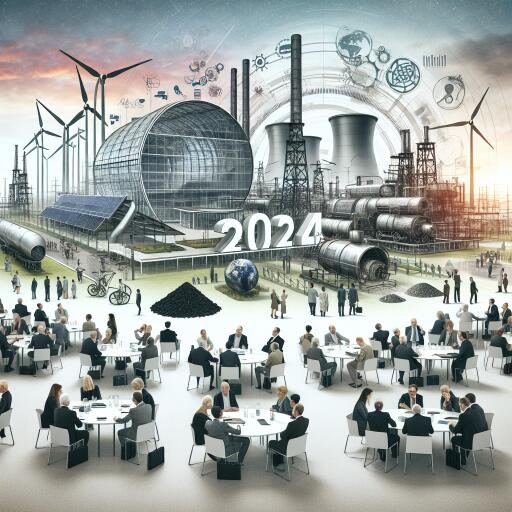Navigating the Industrial Energy Transition at the 2024 ARC Forum
The landscape of industrial energy is undergoing a profound transformation. This shift is particularly noticeable in sectors such as chemicals, refining, iron and steel, food and beverage, cement, pulp and paper, aluminum, glass, and mining. The driving force behind this movement is the global commitment to reducing emissions and advancing towards a more sustainable energy future.
Over the last year, the momentum for change has accelerated, evidenced by a surge in project announcements aimed at emission reduction and embracing the energy transition. At the forefront of these discussions was the 2024 ARC Forum, held in February, which gathered industry leaders, analysts, and innovators to brainstorm the future of industrial energy.
One of the key speakers at the forum was Andrew Obin from Bank of America. Obin highlighted the increasing support from shareholders for climate-related initiatives, underlining the need for an additional $2.4 trillion in capital expenditure in the US over the next five years to meet ambitious net-zero targets.
Wade Maxwell of ExxonMobil shared insights into how the oil and gas industry is not just meeting the current energy demands but is also actively reducing emissions. He explained the industry’s involvement in initiatives such as Net-Zero, Carbon Capture and Storage (CCS), and Clean Blue Hydrogen (H2). He also touched upon how advancements in Artificial Intelligence (AI) and other technologies are optimizing operations and reducing environmental impacts.
“There is a mind-blowing assortment of investment opportunities,” remarked DOE speaker Katheryn Scott, who answered critical questions on how each industry could approach the energy transition. Scott provided a comprehensive overview of technical options available to industries, emphasizing solutions with net-positive impacts.
The Department of Energy (DOE) has made available several liftoff reports that detail the economic and technical aspects of these technologies for specific industries. These reports can be freely downloaded, offering a valuable resource for companies navigating the energy transition.
The 2024 ARC Forum also marked the debut of a sustainability workshop, sponsored by Siemens. The workshop featured discussions on the latest innovations in process automation, data management, and technologies pivotal for the industrial sustainability and energy transition. Topics such as digital twins were explored, showcasing their potential to bridge gaps between managers, engineers, and operators across various industries.
At the core of the energy transition is the global effort to manage the rise in greenhouse gas emissions and, subsequently, the average global temperature. The year 2024 saw an alarming milestone, as the average temperature exceeded 1.5 degrees Celsius above pre-industrial levels for 12 consecutive months, overshooting the Paris Agreement targets. This underscores the urgent need for concerted action in managing and reducing emissions.
The ARC Forum’s sustainability workshop presented an intriguing carrot and stick analogy to describe how regulations and incentives are shaping the pace at which industries are adopting cleaner, low-carbon solutions. The discussion covered key legislative developments, including the Inflation Reduction Act and the expected SEC Climate Disclosure Rule, which will mandate U.S. public companies to disclose their climate-related risks and strategies.
As industries worldwide grapple with the intricate challenges of the energy transition, forums like the ARC provide a critical platform for sharing knowledge, strategies, and innovations. With each stride made towards sustainable energy solutions, the industrial sector moves closer to achieving a balance between meeting global energy demands and preserving our environmental legacy for future generations.








